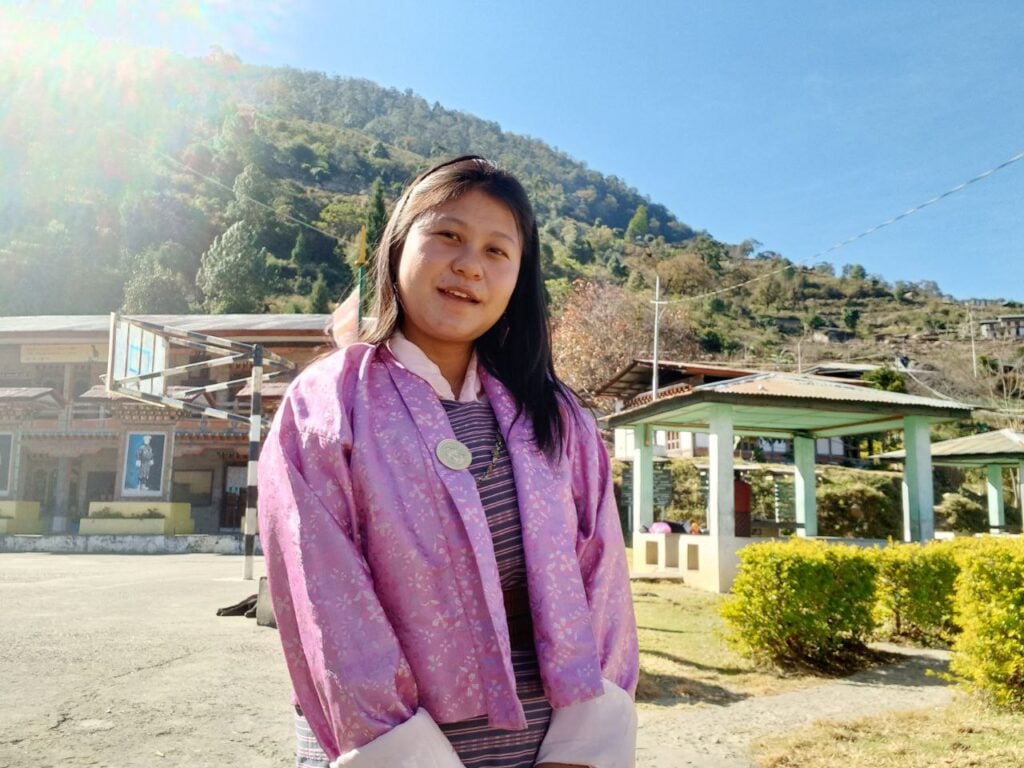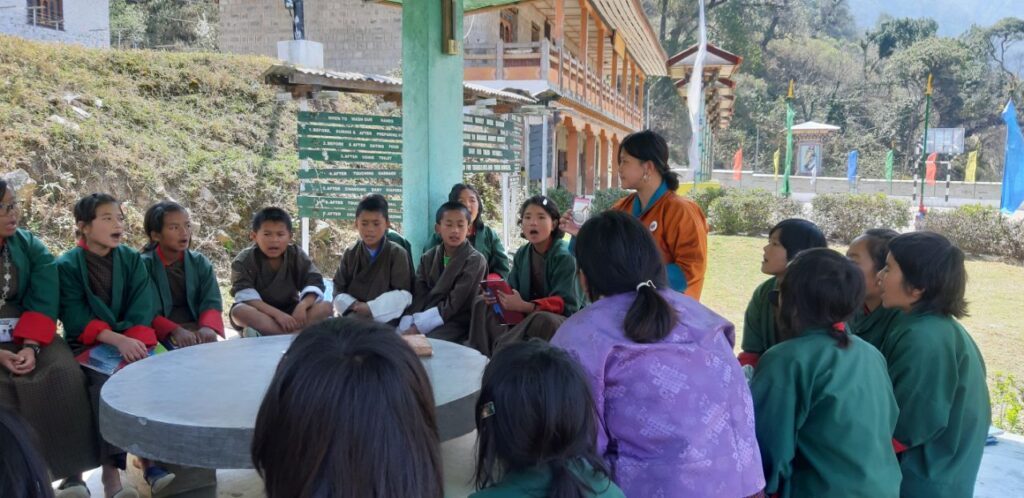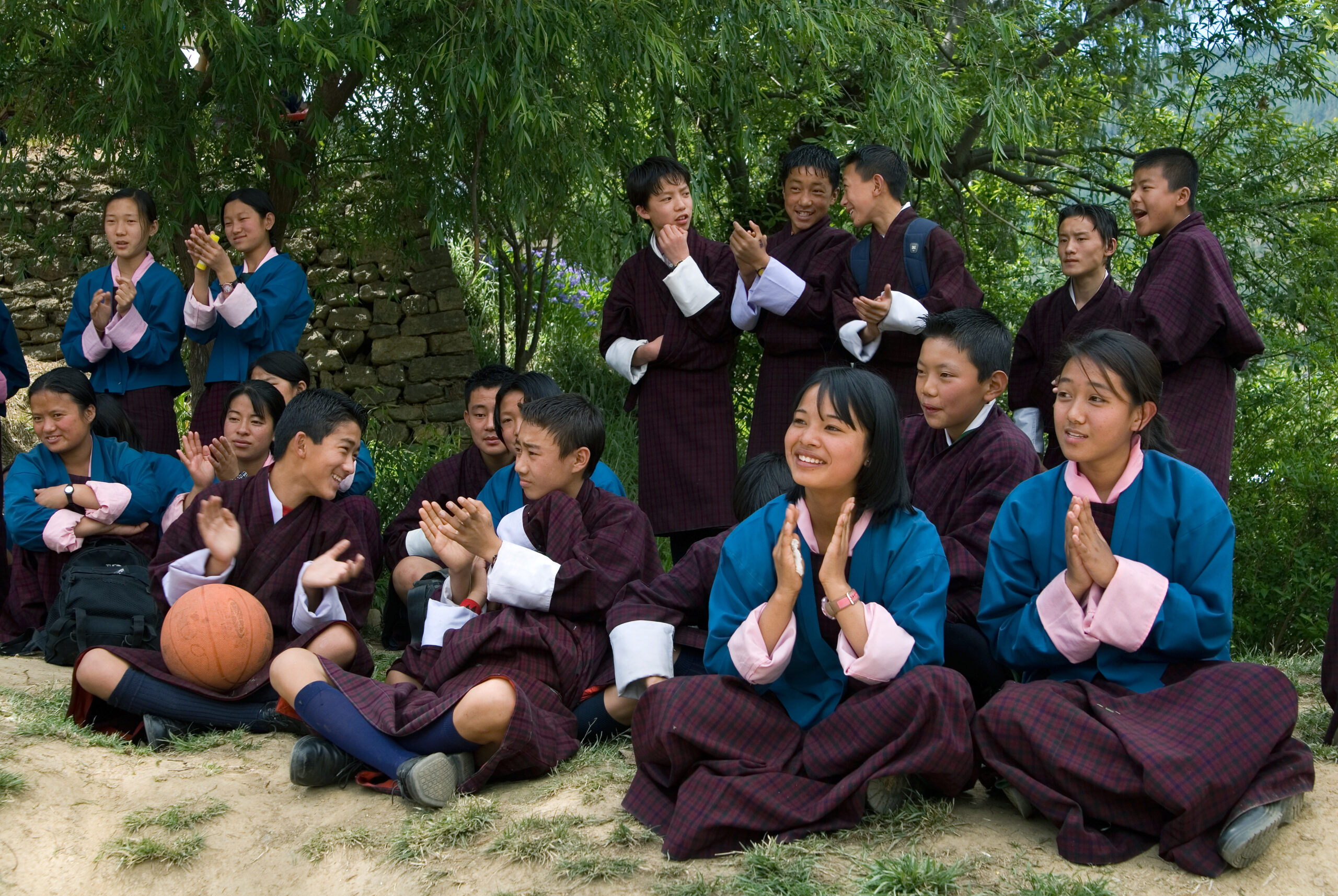The Bhutanese education system started as early as 1914, during the first king’s reign. The first school, Ugyen Dorji High, was in Haa. However, in the 1980s, Bhutan’s education system underwent major changes when it formed its own curriculum, which was previously based on the Indian education system. Having said that, a growing number of Bhutanese students including members of my own family continued to study abroad in India.
Currently, the Bhutanese education system is undergoing a major shift, in line with the country’s royal plan to build a sustainable city. A home grown curriculum called the Bhutan Baccalaureate has been in the works with some schools already using it. The curriculum, inspired by Guru Rinpoche, focuses on the idea that everyone has a Ter, treasure in them.
In order to understand Bhutan’s education system better, I got in touch with my friend and former training mate, Rinzin Dema, who is a teacher in one of Bhutan’s most remote schools. Rinzin has been teaching at Zangkhar Lower Secondary School in Zhemgang for two years.

Little Bhutan: How did you end up as a teacher?
Rinzin: I became a teacher by chance, but it turned out to be one of the best things to happen to me. After completing high school, I got accepted into Samtse College of Education because of my marks in English and Dzongkha (Bhutan’s national language). Later, when I stood in front of a classroom, I discovered the joy of connecting with students, sharing knowledge, and learning from them in return. It’s a journey I’ve come to love deeply, and I feel privileged to play the part of a teacher.
Did someone or something inspire you to choose this career path?
During the training phase, I encountered many amazing lectures and teachers who shaped my perspective on education. Among them, one lecturer stood out with their philosophy of teaching. He believed that every student deserves to be treated with respect and kindness, a philosophy that deeply resonated with me. It inspired me to approach teaching with a similar level of care and dedication.
What’s a typical day for you?
A typical day involves achieving the goals set for my classes and having thorough discussions with my colleagues about school programs and student progress. It’s a balance of planning, teaching, and teamwork to ensure the best outcomes for the students.
What’s your favourite thing about being a teacher?
My favorite part of being a teacher is helping students grow into individuals with strong values. I enjoy building connections with students and the mere thought that one day they could shape our future gives me immense purpose and joy.
The Bhutanese education system is undergoing major changes at-the-moment. What are your thoughts on that?
It’s a confusing time, as a lot of things are happening, and it’s not always clear how or what to do next. However, as far as I believe, the changes are positive, though they demand a lot more dedication. I feel hopeful about the future.

There’s this universal idea that teachers are often overworked. Is that the case for you, and if so, how do you manage it?
Yes, I often feel overworked since we’re expected to handle multiple responsibilities, sometimes taking on the workload of two people. I’ve managed by learning to take care of myself, and by reaching out to others. At the same time, I’ve used these difficult periods in my career to improve myself. For instance, I’ve gotten better at balancing my roles, which I’ve realized contribute not only to my wellbeing, but also to my growth and success as a teacher.
Can you share with us your understanding of the Bhutan Baccalaureate ?
The Bhutan Baccalaureate philosophy helps learners achieve their true potential. It provides a learning framework through processes like roadmaps and assessments to support students’ holistic development. It’s an approach that aligns well with Bhutan’s values and goals.
Would you recommend tourists, guests visiting Bhutan to visit a school or two? Why or why not?
Yes, I think they should. Visiting a school can provide a raw and authentic view of how children in that culture learn. It could give travelers more information and insight on Bhutanese history and culture.
To book your trip to Bhutan, contact us at [email protected] or call +975 1711-2338 any time, anywhere!


